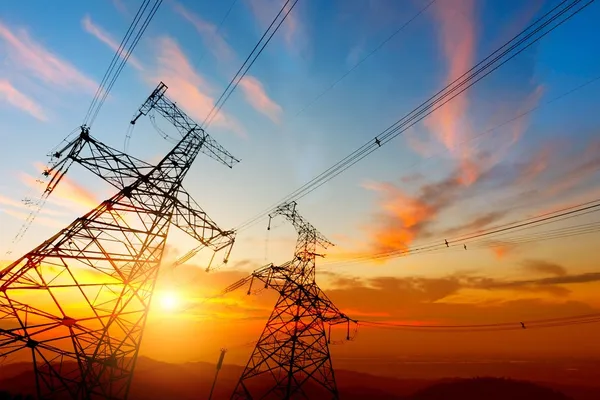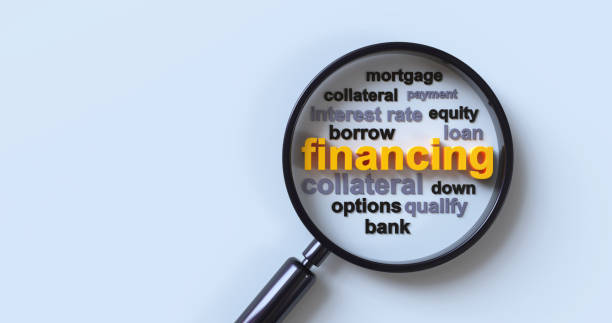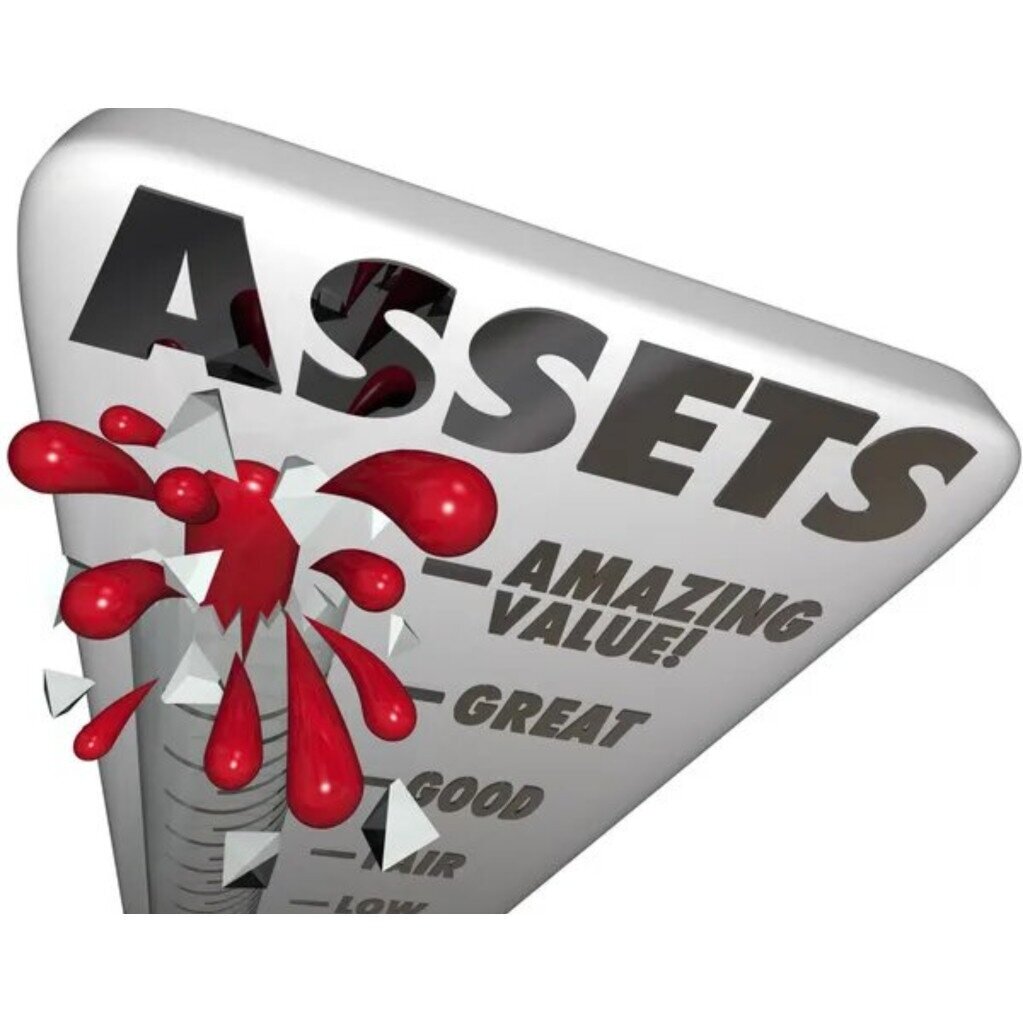
Finding the right property in Upstate NY for your land investment requires careful consideration of various factors. From zoning regulations and environmental concerns to utilities, property tax rates, and financing options, making an informed decision is crucial.
In this guide, we’ll delve into essential questions to help first-time land buyers navigate the process and explore the appeal of purchasing affordable rural properties in Upstate NY. We’ll also shed light on sustainable living options and the serene landscapes that make this region an enticing investment opportunity.
As we address the audience’s need for clear answers, we’ll provide valuable insights to facilitate a smooth and informed land purchasing journey in Upstate NY.
When searching for land in Upstate NY, knowing the zoning regulations is paramount. Understanding the permitted land uses and building requirements can influence your decision-making process significantly. Additionally, environmental considerations such as wetlands, protected habitats, and potential contamination should not be overlooked.
Utilities play a crucial role in land suitability, so we’ll highlight the availability of essential services such as water, electricity, and sewage systems in different areas of Upstate NY. Furthermore, we’ll delve into property tax rates, building restrictions, financing options, resale values, and potential HOA fees or covenants associated with land in this region.
For those considering land in Upstate NY, our insights will cover easements, access issues, and the recreational activities available in the vicinity, along with long-tail keywords for SEO to facilitate your search. We aim to provide a comprehensive understanding to aid in your decision-making process and help you find the perfect property to meet your needs and aspirations.
Understanding Zoning Regulations for Upstate NY Land
When considering purchasing land in Upstate New York, understanding the zoning laws is crucial. Zoning regulations dictate how a piece of land can be used, what type of structures can be built, and other various considerations. Let’s explore the insights into zoning laws in New York State and also take a look at zoning-free land options.
Insights into Zoning Laws in New York State
New York State, like many other states, has specific regulations around how land can be used. The “Guide to Planning and Zoning Laws of New York State” offers detailed information on how municipal officials and attorneys make use of planning and zoning laws in the state. It provides the text of the laws and offers insights into their application.
To gain a basic understanding of the scope and purpose of New York zoning regulation, it is important to know that zoning ordinances can cover a broad spectrum of activities and conditions, including nonconforming uses, noise restrictions, or even physical characteristics of a zone, for example downtown areas or residential neighborhoods.
For more in-depth information on understanding zoning regulations in New York State, you can refer to the technical series designed to help understand the regulations put in place by local New York State governments.
Exploring Zoning-Free Land Options
Those seeking zoning-free land options in Upstate New York can explore the availability of unrestricted land for sale in the region. Zoning-free land allows for greater flexibility in land use and development, making it an attractive option for individuals seeking specific land uses without zoning restrictions.
It’s also worth noting that there are undeveloped land options available in New York, with numerous properties offering owner financing, which could be advantageous for those looking to invest in Upstate NY land for sale with favorable financing options.
To dive deeper into the availability of zoning-free land and undeveloped land options in Upstate New York, be sure to explore the various listings and properties for sale in the area to find a suitable plot that meets your specific requirements and preferences.
Environmental Considerations for Upstate NY Land
When it comes to purchasing land in Upstate New York, understanding the environmental impact and sustainability is crucial. Assessing the environmental considerations for land in this region goes beyond just the physical aspects of the property. It involves evaluating the ecological footprint, conservation efforts, and potential for sustainable living.
Assessing Environmental Impact and Sustainability
Before investing in land in Upstate NY, it’s essential to conduct thorough environmental assessments to ensure the property aligns with sustainable living practices. Here are some key factors to consider:
- Environmental Studies: Conducting environmental studies is critical to avoid purchasing land with hazardous conditions. This includes assessments for soil quality, potential contamination, and the impact of previous land use.
- Conservation Efforts: Investigate the area’s commitment to conservation and environmental protection. Look for nearby organizations or initiatives dedicated to sustainable living, such as local land trusts, green communities, and conservation programs.
- Sustainable Resources: Assess the availability of sustainable resources for off-grid living, such as renewable energy sources, access to clean water, and overall environmental resilience.
- Community Engagement: Explore how the local community embraces environmentalism, sustainable practices, and eco-friendly development. Understanding the community’s environmental values can provide insight into the overall sustainability of the area.
- Land Use Planning: Research zoning regulations, ecological zoning, and any specific environmental restrictions that may impact your intended land use. Understanding the legal framework for environmental protection and land development is essential.
By carefully evaluating these environmental considerations, potential land buyers can make informed decisions that align with their sustainable living goals. Understanding the ecological impact and sustainability of the land is not only essential for the buyer but also contributes to the preservation and responsible development of Upstate NY’s natural resources.
For more information on purchasing land in New York and understanding the environmental aspects, you can refer to additional resources like 7 Mistakes to Avoid When Buying Land in New York and GreenNY Purchasing Requirements and Tools to gain insights into sustainable land acquisition practices.
Sustainable living on Upstate New York land involves proactive consideration of environmental factors, ensuring that the land not only meets your needs but also supports a holistic, eco-conscious lifestyle.
For more information on sustainable living on Upstate NY land, you can explore Upstate NY Environmentalism: How Homeowners Can Be and EcoVillage at Ithaca for practical insights into sustainable community living and environmental stewardship.
Available Utilities for Upstate NY Land
When considering purchasing wooded acreage for sale in Upstate NY, it’s essential to understand the available utilities for the land. The availability of electricity, water, and sewage options can significantly impact your plans for the property.

Electricity
Upstate NY is served by several regional utility companies, including Central Hudson Gas & Electric, Consolidated Edison, KeySpan Energy, National Fuel Gas, and New York State Electric & Gas. These companies provide electricity to various areas, and their services cover a wide geographical range. Understanding the availability and cost of connecting to these electrical grids is crucial when evaluating potential land purchases.
Water
Access to water is a fundamental consideration when evaluating land in Upstate NY. Many properties in rural areas rely on well water systems, and the cost of drilling a well can vary based on the depth and geological characteristics of the land. Additionally, understanding water quality and any potential restrictions on water usage is vital for sustainable living on Upstate NY land.
Sewage Options
For properties not connected to municipal sewage systems, on-site septic systems are commonly used in rural areas. When considering land in Upstate NY, it’s important to assess the feasibility and cost of installing a private septic system. Understanding the local regulations, permit requirements, and potential costs associated with sewage options is essential for planning and development on the land.
For more insights into the costs of installing utilities on land, you might find this resource helpful: How Much Does It Cost to Get Utilities on Land?
Understanding the available utilities for land in Upstate NY is crucial for making informed decisions about potential purchases and development plans. It’s important to research and assess the costs, regulations, and practical considerations associated with electricity, water, and sewage options when evaluating wooded acreage for sale in Upstate NY.
Property Tax Rates for Upstate NY Land
When purchasing land in Upstate NY, it’s essential to consider property tax rates. Property taxes in Upstate NY are calculated based on the assessed value of the land and can vary by location. Understanding property tax assessments and their implications can help first-time land buyers make informed decisions.
Understanding Property Tax Assessments
Property tax rates in Upstate NY can vary by county, with some areas having higher tax rates than others. According to Tax My Property Fairly, New York State has an effective real estate tax rate of 1.72%, placing it in 43rd place in the nation for the lowest property taxes. It’s important for buyers to research the specific property tax rates in the counties they are interested in to understand the financial implications.
In summary, property tax rates for land in Upstate NY can significantly impact the overall cost of land ownership. Prospective land buyers should carefully consider property tax assessments when evaluating the affordability and long-term investment potential of quiet and secluded Upstate NY land parcels.
Navigating Building Structure Restrictions on Upstate NY Land

When considering building on land in Upstate New York, it is essential to navigate the building codes and restrictions to ensure compliance with the regulations. Understanding the limitations and regulations associated with building structures is crucial for first-time land buyers.
Here are some important considerations:
Zoning Regulations
Zoning regulations for land in Upstate NY dictate the allowable land use, including the type and size of structures that can be built. The Department of State provides comprehensive information on building standards and codes in New York State. It is important to review the specific zoning ordinances for the desired property to ensure compliance and avoid any issues with construction plans.
Environmental Considerations
Before beginning any construction, it’s vital to consider environmental factors that may impact building plans. This includes assessments for wetlands, flood zones, and soil conditions. Understanding these environmental considerations can help in making informed decisions about the feasibility of construction and any necessary permits related to environmental impact.
Utility Availability
Determining the availability of utilities such as water, electricity, and gas is crucial when planning for construction. It’s essential to assess the accessibility of these utilities on the property and the potential costs associated with connecting to them. Understanding the utility infrastructure can influence the design and planning of the structure.
Property Tax Rate
The property tax rate for land in Upstate NY varies by location and is an important financial consideration for potential land buyers. It’s advisable to research the property tax rates in the specific county where the land is located to accurately assess the ongoing costs associated with owning the property.
Financing Options
Exploring financing options for purchasing land in Upstate NY is an essential step for first-time land buyers. Understanding the available loan programs, down payment requirements, and interest rates can help in making informed decisions about the financial aspects of land acquisition.
HOA Fees and Covenants
Some properties may be subject to Homeowners’ Association (HOA) fees or covenants that dictate specific restrictions on building structures and property usage. It’s important to review the property’s association documents to understand any potential additional costs or limitations related to construction and property maintenance.
Resale Values
Analyzing the potential resale values for land in Upstate NY can provide insights into the property’s long-term investment potential. Factors such as location, proximity to amenities, and market trends can influence the resale value of the land in the future.
Easements and Access Issues
Identifying any easements or access issues associated with the land is crucial to avoid any future disputes or limitations on property use. Understanding the property’s boundaries and any shared access points is essential for smooth construction and property usage.
Recreational Activities
Exploring the recreational activities available near the land can provide valuable insights into the lifestyle and amenities in the area. Proximity to outdoor recreational opportunities such as hiking trails, lakes, or parks can enhance the overall appeal of the property for potential buyers.
By understanding and addressing these considerations, first-time land buyers can navigate the building structure restrictions on Upstate NY land effectively, making informed decisions regarding property acquisition and future construction plans.
For more information on off-grid living options in Upstate New York, refer to this guide for valuable insights and practical tips on outdoor living in the region.
Financing Options for Purchasing Upstate NY Land

When it comes to investing in scenic properties for sale in Upstate NY, understanding the available financing options is crucial for making an informed decision. Exploring mortgage and loan solutions can provide the necessary financial support to secure the ideal piece of land.
Below, we delve into the various financing avenues prospective land buyers can consider.
Exploring Mortgage and Loan Options
Land and Lot Loans
Land and lot loans are tailored specifically for purchasing land without any immediate plans for construction. Institutions such as Walden Savings Bank offer loan amounts up to $250,000 with flexible terms, providing a viable option for acquiring rural Upstate NY land for sale.
In-House Financing
Alternatively, some entities like New York Land & Lakes offer in-house financing with no application fees or pre-payment penalties. This accessible financing route can make sustainable living on Upstate NY land a reality for first-time buyers.
Rural Land & Lot Loans
For those seeking even more flexibility, institutions like Northeast Rural Land & Lot Loans offer financing options without acreage limits, allowing buyers to consider wooded acreage for sale in Upstate NY without the constraints of conventional loans.
Other Mortgage Options
Furthermore, traditional mortgage lenders such as Pathfinder Bank offer competitive rates on land loans, making it easier to invest in private and serene lots in Upstate NY.
Consultation with Financial Experts
Before moving forward with any financing option, it’s advisable to consult with financial experts to ensure the selected mortgage or loan aligns with the buyer’s long-term investment goals. Seeking professional guidance can help prospective buyers make well-informed decisions regarding financing their scenic properties in Upstate NY.
By understanding the available financial avenues, prospective buyers can take the necessary steps to secure their ideal piece of land in Upstate NY and embark on a journey toward rural living, off-grid options, or outdoor recreational activities in the serene landscapes of Upstate NY.
HOA Fees and Covenants Associated with Upstate NY Land
When considering the purchase of land in Upstate New York, it’s essential to understand the potential obligations and restrictions connected to Homeowners’ Associations (HOAs) and covenants that may impact the property.
Understanding Homeowners’ Association Obligations
Homeowners’ Associations in New York are responsible for managing and maintaining common areas and amenities within a residential community. They have the authority to enforce rules and regulations, collect HOA fees, and oversee property maintenance. These fees typically cover services such as landscaping, snow removal, and upkeep of shared facilities, contributing to the overall aesthetic and infrastructure of the community.
As a prospective land buyer, it’s crucial to inquire about any existing HOA fees and covenants associated with the property. These obligations can vary widely, and understanding them is essential for making informed decisions about the purchase of Upstate NY land.
For more detailed information on New York HOA laws and regulations, you can refer to the New York HOA Laws: A Comprehensive Guide and New York State Attorney General’s websites.
Remember, researching and understanding the implications of HOA fees and covenants beforehand can help ensure a smooth and enjoyable ownership experience in Upstate New York.
Potential Resale Values for Upstate NY Land

When considering purchasing land in Upstate New York, it’s essential to evaluate the potential resale value. Understanding the factors that impact these values can provide valuable insights for first-time buyers.
Factors Impacting Resale Values
1. Location
The location of the land plays a pivotal role in determining its resale value. Proximity to urban centers, scenic views, and accessibility to amenities like lakes, mountains, and recreational areas can significantly influence the desirability and, consequently, the resale value of land in Upstate NY.
2. Zoning Regulations
Zoning regulations dictate how the land can be utilized, affecting its potential uses and, in turn, its market value. Understanding the zoning guidelines is crucial for buyers looking to maximize the future resale potential of their property.
3. Environmental Considerations
Environmental factors, such as natural features, soil quality, and potential ecological restrictions, can impact the attractiveness of the land to potential buyers. Land with minimal environmental constraints may hold higher resale value appeal.
4. Access to Utilities
The availability of essential utilities, including water, electricity, and internet connectivity, can significantly influence the marketability and resale potential of land in Upstate NY. Buyers often seek properties with convenient access to these amenities.
5. Property Tax Rates
The property tax rate for land in Upstate NY directly affects its ongoing cost of ownership and, consequently, its long-term resale value. Understanding the tax implications is important for evaluating the investment potential of the land.
6. Building Restrictions
Regulations governing the construction of buildings, such as the size, type, and design, can impact the land’s potential for development and, subsequently, its resale value. Knowing the building restrictions is crucial for future planning and resale considerations.
7. Financing Options
The availability of financing options for purchasing land in Upstate NY can impact the pool of potential buyers and their ability to invest in the property, ultimately influencing its resale potential.
For more information on land values and market trends, you can refer to the Northeastern Region Land Values Report.
Understanding these factors and their significance in relation to the long-term investment and resale potential of land in Upstate NY is essential for first-time buyers seeking to make informed decisions.
The resale values of land in Upstate NY, especially those with sought-after attributes like mountain views, play a crucial role in the overall investment potential and desirability for potential buyers. By examining these factors, first-time buyers can make informed decisions and maximize the future resale potential of their land investments.
For further insights into the factors affecting vacant land prices in upstate New York, refer to the Six factors affecting New York land resource.
By understanding and assessing these factors, first-time land buyers can navigate the market with clarity and confidence, ensuring they make informed decisions aligned with their long-term goals and aspirations.
Navigating Easement Considerations
Easements and access issues are crucial considerations when purchasing land in Upstate NY. Understanding the potential implications of easements is vital for ensuring a smooth and hassle-free land ownership experience.
Easements in Upstate NY
Easements in Upstate NY may arise due to various factors such as rights of way, utilities, or access across neighboring properties. It’s essential to conduct a thorough title search and seek professional legal advice to understand any existing easements that may affect the use and development of the land.
Access Issues
Navigating access issues involves identifying any limitations or encumbrances that may impact the ease of entry and exit from the property. Understanding the rights and obligations related to access can help avoid disputes with neighboring landowners and ensure uninterrupted enjoyment of the land.
Seeking Professional Assistance
For a comprehensive assessment of easement considerations, it’s advisable to consult with experienced real estate attorneys and surveyors who specialize in Upstate NY properties. Their expertise can provide valuable insights into easement-related intricacies, guiding informed decision-making for potential land buyers.
Understanding easements and access issues is essential for prospective land buyers in Upstate NY. By delving into these considerations, individuals can make informed decisions and mitigate potential challenges associated with land ownership.
For more information on easements in New York, consider referring to resources such as A Guide to Easements in New York, NY and Conservation Easements – NYDEC.
Stay tuned for the next section, where we’ll explore zoning regulations for land in Upstate NY.
Recreational Activities Near Upstate NY Land
When purchasing land in Upstate NY, it’s essential to consider the abundant recreational activities available nearby. This not only adds value to your investment but also offers a range of experiences for your future enjoyment. Here are some outdoor recreational opportunities you can explore:
Exploring Outdoor Recreational Opportunities
Upstate NY is a haven for outdoor enthusiasts, offering a plethora of activities such as skiing, hiking, kayaking, and sailing. The region is blessed with breathtaking natural resources, providing opportunities for hunting, fishing, and hiking in areas like the Adirondacks and Catskill Mountains. Several state parks and nature reserves offer opportunities for camping, bird watching, and wildlife photography.
Whether you seek adventure or tranquility, there are activities for all preferences. You can spend a day rafting, horseback riding, or hiking in the Catskills, or embark on an outdoor adventure by land or water in Albany County. The region boasts serene lots with mountain views, wooded acreage, and secluded parcels, making it an ideal destination for those looking for quiet and private retreats.
To explore more about outdoor activities in Upstate NY, you can refer to resources such as New York Outdoor Activities and Things To Do – NYDEC.
Investment opportunities in Upstate NY land are abundant, and the diversity of recreational activities available nearby adds to the allure of owning property in this region. Whether you’re interested in affordable rural land, sustainable living, or scenic properties, Upstate NY offers an array of options for potential buyers.
For more information on land use regulations, zoning laws, environmental considerations, and utility availability in Upstate NY, refer to the following links:
- Guide to Planning and Zoning Laws of New York State
- Forests And The Environment – NYDEC
- How Much Does It Cost to Get Utilities on Land?
- Upstate NY Has Some of the Highest Property Tax Rates
Conclusion
In conclusion, when searching for affordable rural Upstate NY land for sale, it is essential to consider various factors to make an informed decision and find the right property that meets your needs. Understanding the zoning regulations, environmental considerations, available utilities, property tax rates, building restrictions, and financing options is crucial.
Additionally, considering potential resale values, easements, access issues, nearby recreational activities, and investment opportunities can contribute to a successful land purchase. By carefully evaluating these aspects and conducting thorough research, prospective buyers can secure sustainable and scenic properties for a fulfilling off-grid living experience in Upstate New York.

